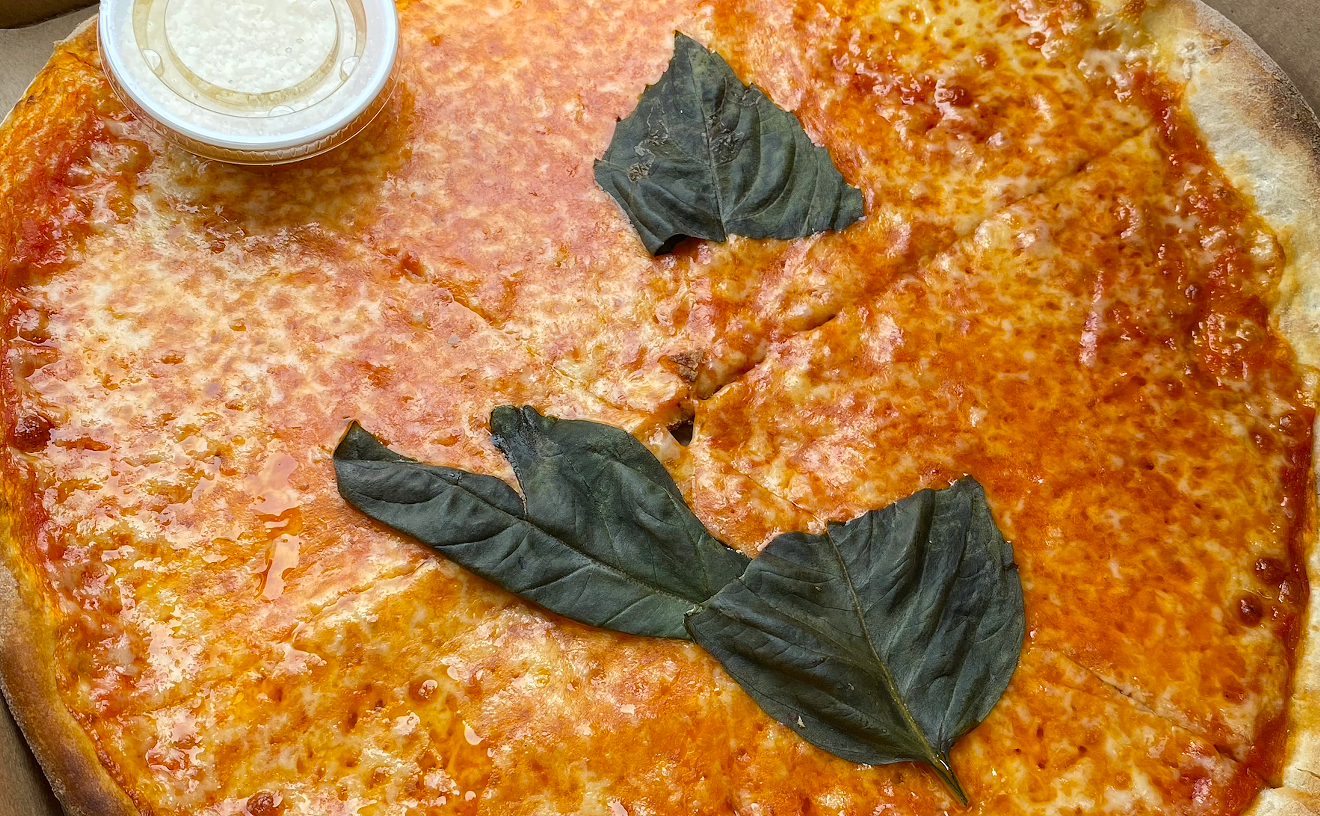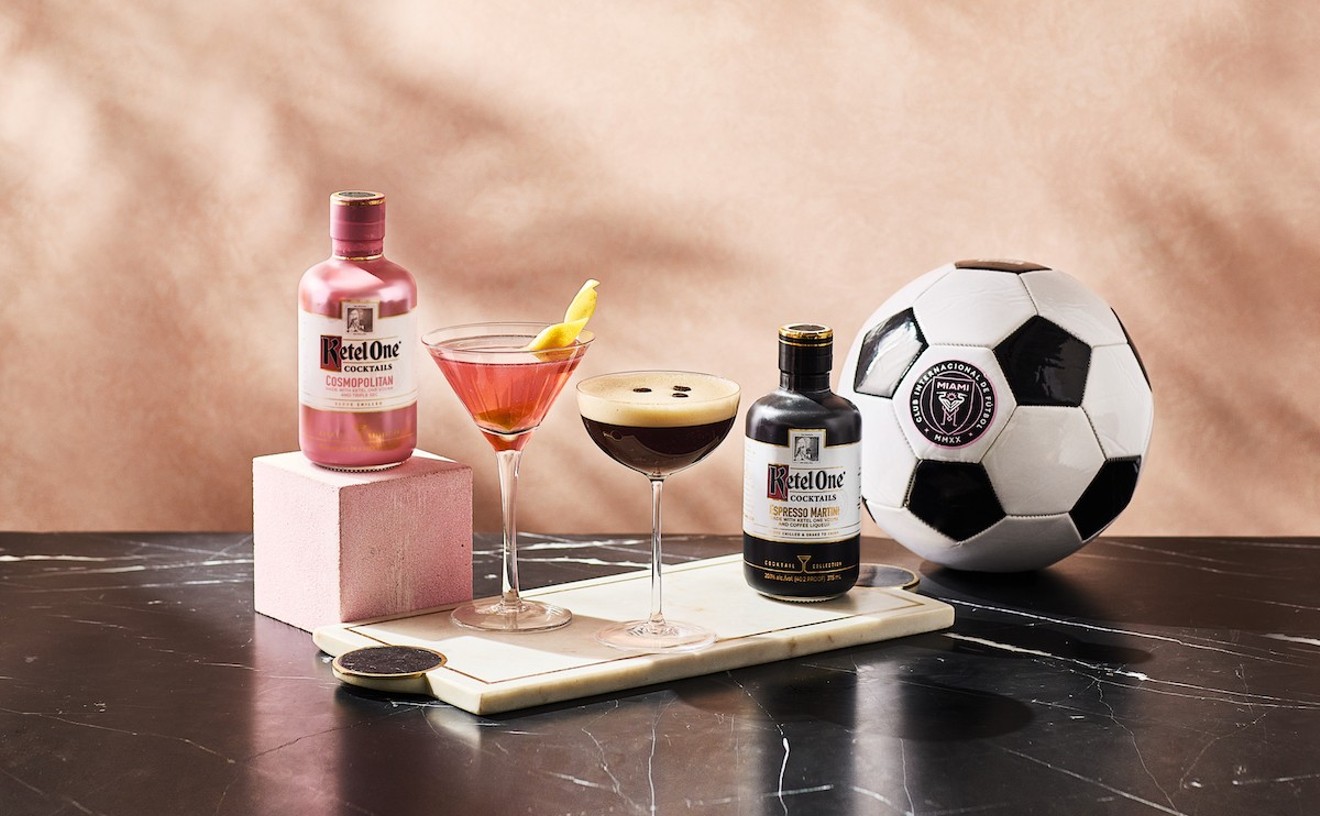When most kids were terrified of getting stung, Dr. Leo Gosser was developing a lifelong passion for bees. As the son of a beekeeper, he has been around the buzzing little insects many consider a pest for most of his life. He believes they are indispensable contributors to our food supply and the world ecosystem.
After spending the majority of his adult life as a chemist in the pharmaceutical industry, Gosser founded the Broward Beekeepers Association with his wife, Marie, six years ago. Together, the couple have made it their goal to support bee populations and a network of more than 60 local keepers in the county, as well as the area's first community apiary.
Located on the north side of Sample Road just a couple of blocks west of 441, among big car dealerships, nondescript strip malls, and unmemorable apartment complexes, the apiary looks like little more than undeveloped land. Overgrown weeds divide the three-foot-tall, brown and white hives from the rest of the property on Mecca Farms, one of the few plots of agricultural land remaining in the county.
A small dirt driveway separates the apiary from the main road. We pulled up on a sunny Wednesday afternoon to meet Gosser, a sturdy, white-haired man with smiling eyes and a calm disposition, and two members of the association: Edmund Reid, a slightly bashful man with a melodic island accent, and Dan Novak, a pest-control professional with wire-framed glasses and a friendly Southern manner. Bees buzzed and darted around in the afternoon heat.
"Guard bees," said Gosser with a laugh. "They try to keep people at a distance from the hive."
As the guard bees attempted to scare us away, Gosser, Reid, and Novak gave us the rundown on how the community apiary and overall association work. Anyone can join, even those without experience in beekeeping; all it takes is an interest and a willingness to try something new.
The community hives, which were started about six months ago, are cared for by the association. The $50 annual membership fee includes a T-shirt, a book on beginning beekeeping, access to necessary extraction tools, and mentorship. Members must purchase their own hives or nucs, short for nucleus colonies. Although the association has more than 60 members, the community apiary currently houses hives for only eight of them.
According to Gosser, "The idea is to give beekeepers a place to keep bees where they wouldn't normally have the option."
Reid found the association a year ago while looking for raw honey. As a native of Jamaica, he said something just didn't seem to match up between the honey he found there and the products he found in the United States. After stumbling upon a Broward Beekeepers Association meeting, he decided to start his own hives.
"I thought [beekeeping] was interesting," Reid said. "Next to humans, bees are the most studied creatures. They're organized; they pretty much do everything for themselves. We just provide the food and water."
Novak joined the association three years after removing a hive from a customer's home. Rather than exterminate, he decided to take it home. He now keeps hives at his home in Coral Springs and at the community property. Since starting his hives, he's been working on attaining certification with the University of Florida's Master Beekeeper Program; he's currently waiting for the advanced test to be offered in the area. Novak also mentors the novices in the club.
As a pest-control specialist, Novak has long been aware of the value of bees to the environment; however, since joining the association, he has learned about the pressures facing bee populations as well.
Since 2006, U.S. commercial beekeepers have been experiencing losses of 30 to 90 percent of the hive populations in a phenomenon referred to as colony collapse disorder. Throughout the 1990s, losses had been stable, at 17 to 20 percent. According to Gosser, a major contributing factor to the growing problem is a class of pesticides called neonicotinoids.
Gosser says exposure to the pesticides is not strong enough to outright kill the bees, but it's hindering individual bees' development, creating learning, navigational, and communication deficiencies.
"Young bees go through four stages: egg, larva, pupa, adulthood," said Gosser. "At every stage, these bees are being exposed to these chemicals. We don't really know what is happening, but we do know young bees are not developing properly; it's a gradual exposure, and that's a problem."
While Gosser talked us through the extraction process, Reid and Novak demonstrated. After donning white bee suits -- basically, heavy-duty coveralls -- and wide-brimmed netted hats, the men fired up the smoker, a device that looks like a tin can with an accordion strapped to its side, using some dried pine needles. It calms the bees, just in case they get too agitated by the keepers' intrusion on the hives.
Together Reid and Novak performed their monthly check on the hives. According to Gosser, for three hives, you should expect three hours a month in maintenance between checking the health of the hives, extracting honey, and replacing frames as needed. (The average amount of honey garnered is 40 pounds per hive per year.) As they smoked the nucs and pulled the wooden frames from the boxes, the hexagonal pattern of the honeycomb was clearly visible. None was ready for extraction, but the hives were coming along well.
As they walked away from the hives, bees surrounded Reid and Novak. Gosser got a couple of stings but seemed completely unperturbed. For a beekeeper, it's just part of a day's work.
The Broward Beekeepers Association can frequently be found at the Parkland Farmers' Market, which takes place from 9 a.m. to 1 p.m. the first and third Sundays of the month at 8350 Ranch Road in Parkland. It also conducts monthly meetings on the second Sunday of the month at 4 p.m. at the Sawgrass Nature Center, located at 3000 Sportsplex Drive in Coral Springs. Call 954-344-1493, or visit browardbees.org.
Follow @ CleanPlateBPB










